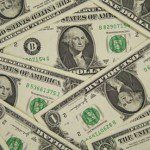Encouraged by recent upticks in corporate profits but wary of a potential weakening on the national economic scene, state economists on Thursday raised revenue estimates for next year by 1.4 percent from calculations made five months ago.
 Meeting to tweak revenue estimates for the coming three years, a panel of analysts from the Legislature, the governor’s office and the Department of Revenue, said collections into state coffers would increase $260 million for the fiscal year beginning July 1, 2011.
Meeting to tweak revenue estimates for the coming three years, a panel of analysts from the Legislature, the governor’s office and the Department of Revenue, said collections into state coffers would increase $260 million for the fiscal year beginning July 1, 2011.
The forecast for general revenue collection for the remainder of the current fiscal year also went up, increasing 1.1 percent, or $229 million, to $23.0 billion. The 2010 figure is 2.4 percent above 2009-2010 collections, a year-to-year increase that is expected to continue through 2014.
“Overall the conference remains cautiously optimistic,” said Amy Baker, coordinator for the legislative Office of Economic and Demographic Research. “Underlying the forecast is the assumption that the extreme financial and economic stress experienced over the last few years reached its bottom some time during the spring of 2010.
“Months of modest growth are expected before full recovery beings in earnest in the spring of 2011,” Baker concluded.
Missing from Thursday’s data, however, were effects of the BP oil spill on sales tax and other revenue collections from May to July and beyond. Effects of the spill have yet to be tabulated as sales tax figures for June haven’t been finalized.
The panel plans to release its economic outlook statement late next week. That report is closely watched because it gives lawmakers and agency heads a clearer picture of how much money will be available for recurring programs and high priority items.
Lawmakers are expected to face a gap of up to $6 billion next year as federal money dries up while enrollment and costs in the state’s Medicaid program continue to rise.
Stronger than expected business profits and higher hospital fee collections will offset drops in documentary stamp collections, which are derived from real estate transactions, economists said.
Despite the encouraging news on the state front, national forecasts have been ratcheting back recovery talk as leading indicators point to a weaker recovery than previously predicted.
Continued tight credit and housing overstock continue to weigh down recovery in the real estate sector. Meanwhile, recession wary consumers are holding back, at least for now, from purchases on such big ticket durable goods as automobiles.
Further slowing recovery is the record number of citizens in some sort of foreclosure proceeding, which will slow their ability to return to the consumer market, a major driver of the U.S. economy.
“We’re seeing more and more people talking about how weak the (national) recovery has been,” said Tim Campbell, an EDR analyst. “A double dip (recession) may be seen as more of a possibility.”
By Michael Peltier
The News Service of Florida


